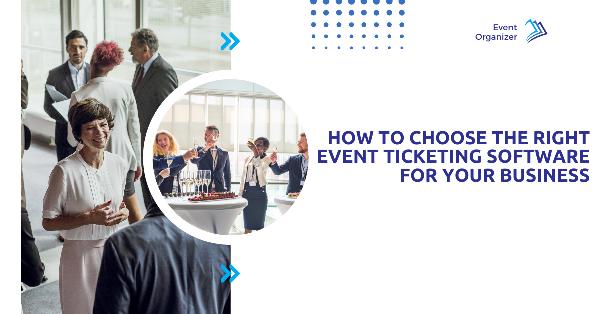How to Choose the Right Event Ticketing Software for Your Business

Selecting the right event ticketing software is crucial for the success of any event. Whether you're organizing a small local gathering or a large-scale conference, the right ticketing solution can streamline operations, enhance attendee experience, and boost sales. Here’s a comprehensive guide to help you choose the best event ticketing software for your business.
1. Understand Your Needs and Goals
Before diving into the selection process, clearly define your event’s requirements and objectives. Consider the following:
Event Size and Type: Are you hosting a small workshop, a music festival, a corporate conference, or a hybrid event?
Ticket Types: Will you offer general admission, VIP, early bird, group discounts, or free tickets?
Sales Channels: Do you need online ticket sales, on-site sales, or both?
Budget: What is your budget for ticketing software, including potential fees and transaction costs?
2. Essential Features to Look For
Different ticketing software offers various features. Identify which ones are essential for your event:
User-Friendly Interface: Ensure the software is easy to navigate for both organizers and attendees.
Customizable Ticketing Options: Look for software that allows customization of ticket types, pricing, and discount codes.
Payment Processing: Secure and diverse payment options are crucial. Check for integrations with popular payment gateways.
Mobile Accessibility: With a growing number of attendees using mobile devices, ensure the software is mobile-friendly.
Event Promotion Tools: Features like social media integration, email marketing, and affiliate programs can help boost ticket sales.
Analytics and Reporting: Comprehensive data analytics can provide insights into sales trends, attendee demographics, and marketing effectiveness.
Customer Support: Reliable customer support is essential for addressing any issues that arise before or during the event.
Security: Ensure the software provides robust security measures to protect attendee data and prevent fraud.
3. Evaluate Integration Capabilities
Your ticketing software should seamlessly integrate with other tools and platforms you use. Consider:
CRM and Email Marketing: Integration with customer relationship management (CRM) systems and email marketing tools can streamline communication and marketing efforts.
Social Media: Integration with social media platforms can facilitate event promotion and engagement.
Event Management Platforms: If you use other event management tools, ensure the ticketing software can integrate smoothly with them.
Accounting Software: Integration with accounting systems can simplify financial tracking and reporting.
4. Assess User Experience
Test the software from both the organizer and attendee perspectives. A smooth user experience can significantly impact the success of your event.
Demo and Trial: Take advantage of free trials or demos to explore the software’s functionality and ease of use.
Attendee Experience: Consider the ticket purchasing process, from browsing and selecting tickets to payment and confirmation.
Check-In Process: Evaluate the efficiency of the check-in process, especially for larger events. Look for features like QR code scanning and mobile ticketing.
5. Compare Pricing Models
Ticketing software pricing can vary widely. Compare the pricing models to find the best fit for your budget:
Flat Fee: Some platforms charge a flat fee per event or per month.
Percentage-Based Fee: Others take a percentage of each ticket sale.
Hidden Fees: Be aware of any additional fees for features, payment processing, or customer support.
6. Read Reviews and Seek Recommendations
Research reviews from other event organizers and seek recommendations from industry peers. This can provide valuable insights into the software’s reliability, customer service, and overall performance.
7. Check for Scalability
Ensure the software can grow with your business. As you plan future events, you may need additional features or capacity. Choose a solution that can scale according to your evolving needs.
Conclusion
Choosing the right event ticketing software requires careful consideration of your event’s specific needs, essential features, integration capabilities, user experience, pricing models, and scalability. By taking the time to evaluate your options, you can select a solution that enhances your event’s success and provides a seamless experience for your attendees.
Note: IndiBlogHub features both user-submitted and editorial content. We do not verify third-party contributions. Read our Disclaimer and Privacy Policyfor details.


